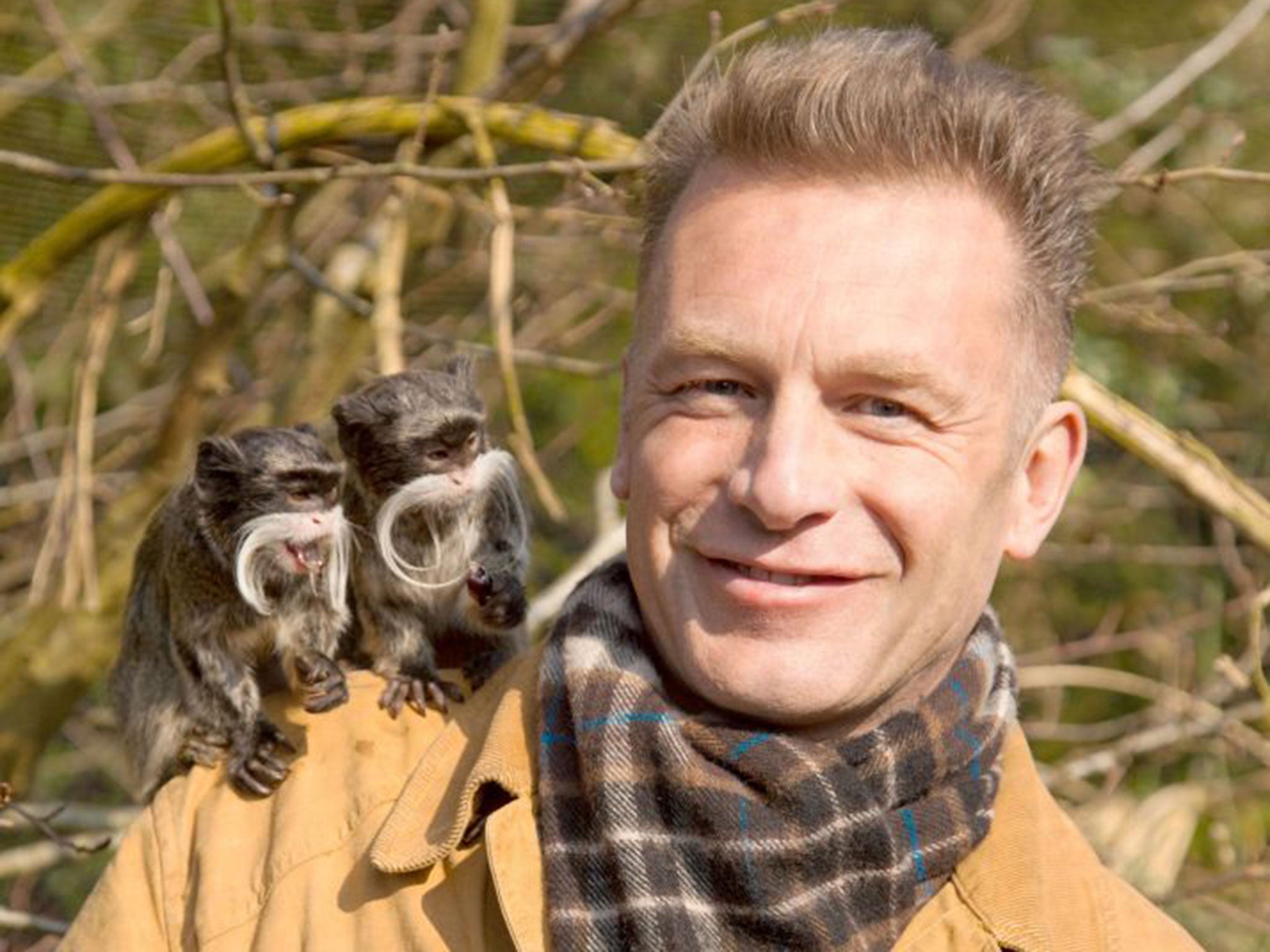The World's Sneakiest Animals, TV review: Packham gets out his innuendos for fiddler crabs and large appendages
The script for the BBC show might have made the late Frankie Howerd blush with its saucy euphemisms

I guess that Chris Packham, the naturalist and presenter of The World's Sneakiest Animals, knew exactly what he was doing when he described the male fiddler crab's habit of waving his "oversized appendage" in the air to attract the attention of passing females. Mucky devil.
In a script that might have made the late Frankie Howerd blush (titter ye not) with its saucy euphemisms, Packham certainly succeeded in catching my attention, waving his dirty great innuendo around like that. Just as well that I appreciate a bit of anthropomorphic smut as much as the next BBC2 viewer. I should point out that the oversized appendage in question is in fact a claw, and that male fiddler crabs try to seek out and hang around with other, less well endowed, male fiddler crabs to make themselves look better. Anyway, when they do find a female fiddler crab their relationships are rarely purely planktonic.
Mostly, as with successfully promiscuous beings of my own species, I was filled with a mixture of emotions at some of these animals' ways. I mean, they are just animals, after all; it isn't like you've discovered your bank manager engaged in an orgy or you accidentally bumped into your neighbour at a party pretending to be a male/female in order to gain sexual advantages. You'd have views on that, I'm sure, but it seems too odd to censure an emperor marmoset or a cuttlefish (for it is they, respectively, who indulge in the above behaviour), for pushing the boundaries of acceptable behaviour in the same way.
On the other hand, I also feel a certain ambivalence towards the utterly amoral behaviour of the red kangaroo. Without any resemblance to its Aussie human co-habitants, obviously, the red roo spends most of its time trying to mate with the females in the mob behind the back of their "husband", the established dominant male. Disgraceful. On the other hand, the really interesting thing is what lies behind this evolutionary behaviour. After all, in the majority of creatures the males have a good knockout competition or scraps to determine who is the biggest, beefiest and toughest male, and therefore who bags the rights to the ladies, passing on their big, tough manly genes to the next generation.
It occurs to me that the red kangaroo, and a few other species (including us lot, as it happens), also place a premium on what is called by Packham "sneakiness", but to my mind is just another form of intelligence – the ability to deceive while appearing to be a perfectly respectable member of the red kangaroo/human community, and thus survive in a nasty world. Well, that's how I see it, anyway.
Talking of an all-out assault on civilised values, I've now caught up with the ITV revival of Birds of a Feather. My memory may be wrong on this (the original BBC run ended in 1998) but I think I am right in saying that this programme was the first on British television to feature the phrase (and look away now if you're easily offended) "skid marks" – that is, outside regional television news reports about road traffic accidents.
If there is a televisual equivalent of a pair of knickers of uncertain vintage having to be pressed into service after nearly two decades, this was it; tired, faded and driven by sheer desperation.
Join our commenting forum
Join thought-provoking conversations, follow other Independent readers and see their replies
Comments